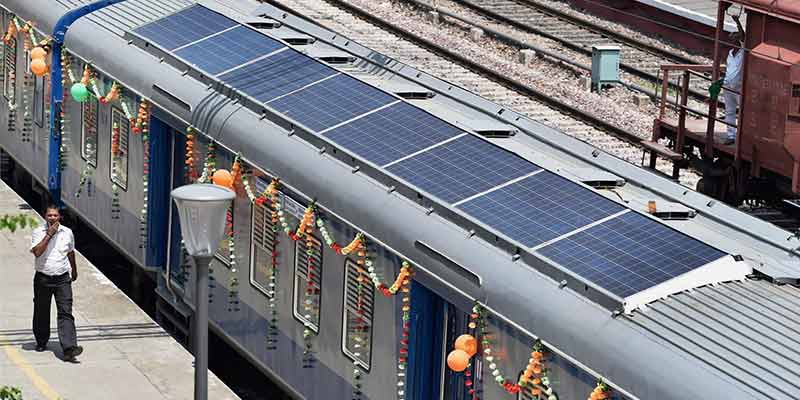- India
- Aug 28
Self-sustenance of Indian Railways in power needs
In order to achieve its objective of becoming 100% self-sustainable for all its power needs and also to contribute to national solar power goals, Indian Railways organized wide ranging discussions with key stake holders under the chairmanship of Minister of Railways and Commerce & Industry Shri Piyush Goyal. It may be noted that Indian Railways is committed to utilize solar energy for meeting its traction power requirement and become a complete ‘Green mode of transportation’ thus achieving the net zero carbon emissions target by 2030.
The primary areas of discussion were:
• Innovative solutions for setting up solar projects along the railway track.
• Possible power procurement routes for achieving 20 GW renewable energy target, set by the Indian Railways, to become the net zero carbon emitter by 2030.
• Challenges in large scale deployment of solar energy projects by the Indian Railways.
Steps taken so far
• Based on Prime Minister's direction to solarise railway stations and utilize vacant railway land for Renewable Energy (RE) projects, Ministry of Railways has decided to provide solar power plants on vacant unused Railway land on mega scale.
• A pilot project of 1.7 MW capacity with direct connectivity to 25 KV traction system has been successfully operationalised in Bina.
• In addition, solar plant of 3 MW capacity has also been commissioned at Modern Coach Factory (MCF), Raebareli for non-traction applications.
• Further, 2 more projects – one at Diwana for 2 MW and another at Bhilai for 50 MW capacity for connectivity with State Transmission Utility (STU) and Central Transmission Utility (CTU) respectively are in progress.
• Indian Railways has developed a mega plan for installing solar plants of 20 GW capacity by utilizing its vacant land by 2030.
• In this regard, to begin with, bids for 3 GW solar projects on vacant Railway land parcels and land parcels along the railway track have already been invited by Railway Energy Management Company Ltd. (REMCL), a PSU of Indian Railways.
• These solar projects, besides supplying power to Railways at reduced tariff, will also protect the Railway land by construction of boundary wall along the track.
• With the ambitious plan of achieving 100% electrification for Railways by the year 2023, Indian Railways energy consumption is set to become more than 33 billion units by 2030 from its current annual requirement of about 21 billion units.
(The author is a trainer for Civil Services aspirants. The views expressed here are personal.)

